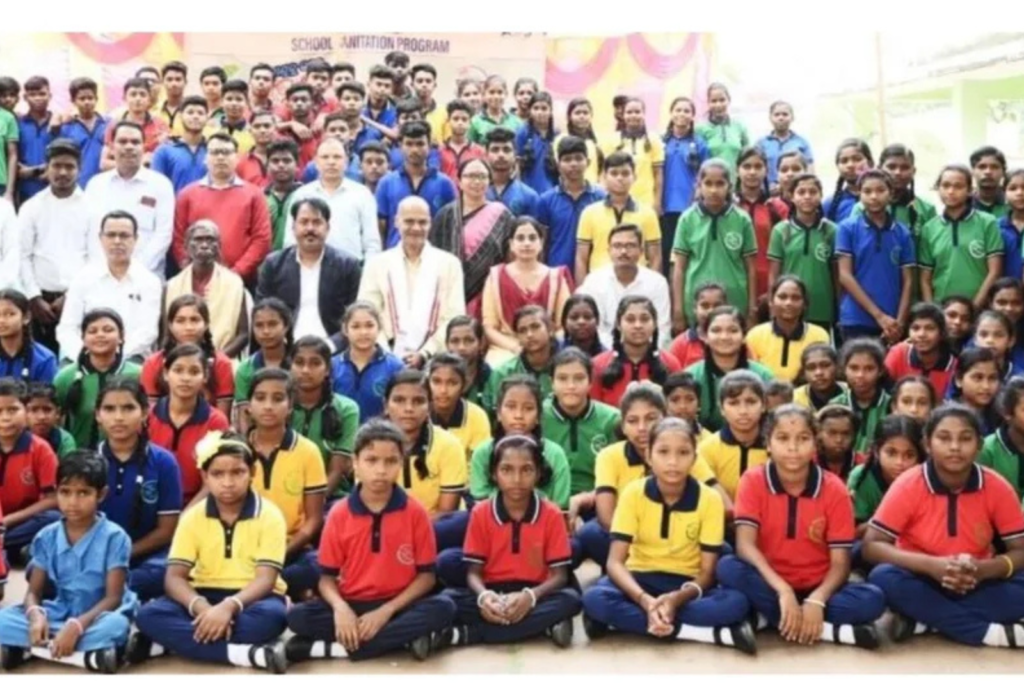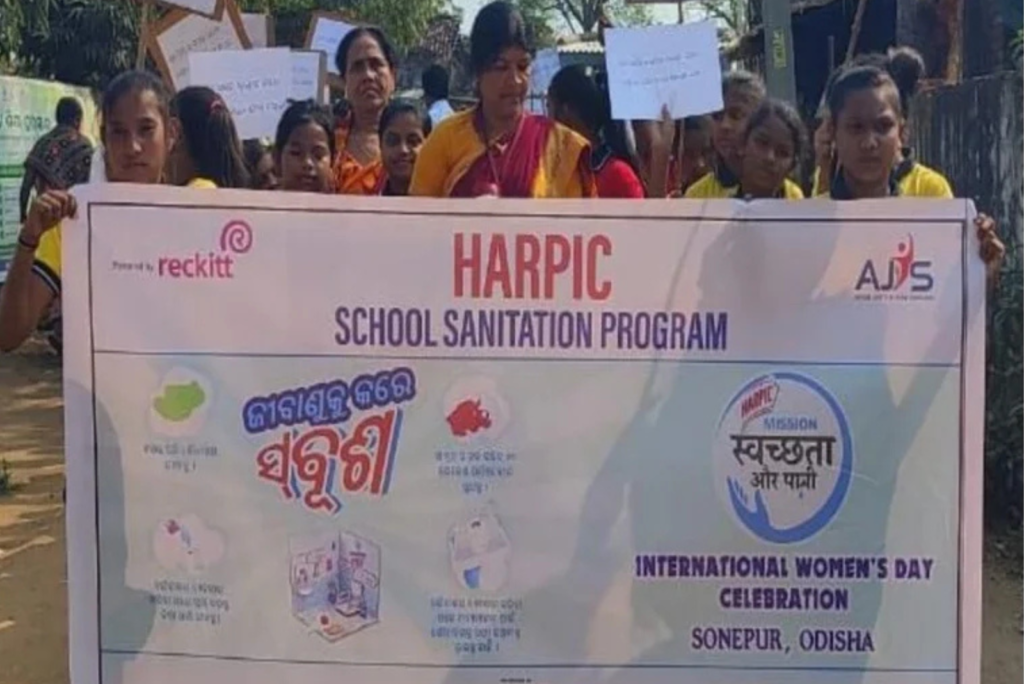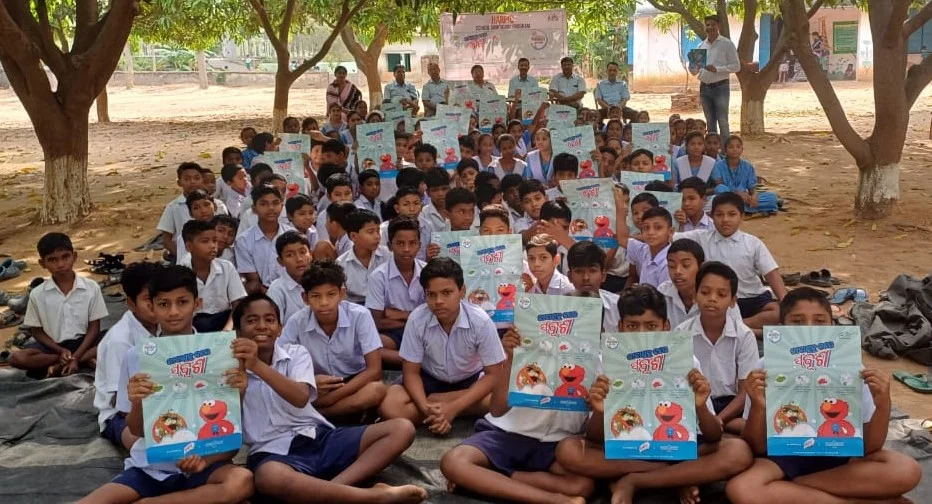Empowering Students for Lasting Change: The Impact of Student Engagement in School Sanitation in Khordha District, Odisha
In the district of Khordha in Odisha, a remarkable shift is taking place in the realm of school sanitation. Thanks to the Harpic School Sanitation Program, facilitated by the dedicated efforts of AJ FOUNDATION, a local WASH NGO, school children are not just passive beneficiaries but
active architects of change. This approach has led to a high sense of ownership among students and significant improvements in sanitation behaviors.

The Power of IEC: Information, Education, and Communication
The cornerstone of this transformation is the effective use of IEC (Information, Education, and Communication) strategies. Recognizing the pivotal role that students play in driving behavioral change, the program has placed them at the heart of its IEC design. This strategy goes beyond traditional teaching, engaging students in interactive and practical ways.
Student Engagement: The Key to Ownership
- Workshops and Training Sessions: The program kicks off with dynamic workshops and training sessions designed to educate students about the importance of sanitation and hygiene. These sessions are not just lectures but interactive experiences where students participate in discussions, games, and demonstrations.
- Hygiene Clubs: Students form hygiene clubs, taking on the responsibility of maintaining the cleanliness of their school premises. These clubs organize regular cleanliness drives, competitions, and awareness campaigns. The sense of responsibility and teamwork fosters a deep connection to the program.
- Creative Involvement: Students are encouraged to express their understanding of sanitation through creative means such as posters, skits, and songs. This not only reinforces their learning but also spreads the message to their peers and community.
- Peer Educators: Selected students are trained as peer educators, empowering them to lead by example and educate others. This peer-to-peer learning model has proven to be highly effective in promoting consistent and sustainable behavior change.

Impact on Sanitation Behavior
The active involvement of students in the IEC design has led to noticeable changes in sanitation behavior in schools across Khordha:
- Improved Hygiene Practices: Students now understand the importance of regular handwashing, using toilets properly, and maintaining cleanliness. These practices have become a part of their daily routine, significantly reducing the incidence of hygiene-related illnesses.
- Sustainable Cleanliness: The hygiene clubs ensure that the new sanitation facilities are well- maintained. Regular inspections and cleanliness drives have instilled a sense of pride and responsibility among students.
Community Outreach: The students’ enthusiasm and commitment have had a ripple effect, influencing their families and communities. By taking the lessons learned in school back home, they have become ambassadors of good hygiene practices.
Long-Term Benefits: The program’s focus on education and engagement is laying the foundation for lifelong habits. As these students grow, they carry forward the values of hygiene and sanitation, contributing to a healthier community.
The success of the Harpic School Sanitation Program in Khordha is also a testament to the collaborative efforts of various stakeholders. Teachers, parents, local authorities, and AJ FOUNDATION have worked in unison to support and sustain the program. Their collective efforts have created an environment where students feel supported and empowered to take charge.
Looking Ahead
The transformation witnessed in Khordha serves as an inspiring model for other regions. By placing students at the center of the sanitation program and harnessing the power of IEC strategies, significant and lasting change is achievable. The high sense of ownership among students is not just a testament to the program’s success but a beacon of hope for a cleaner, healthier future.

As the Harpic School Sanitation Program continues to evolve, the focus remains on empowering the younger generation. Their engagement, enthusiasm, and commitment are the driving forces behind the sustainable sanitation revolution in Khordha. Through education, creativity, and collaboration, these students are not only transforming their schools but also shaping the future of their communities.
